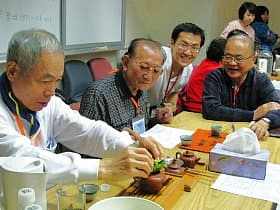Millions of Chinese Seniors Embrace Free Lifelong Learning at "Universities for the Aged"

Across China, millions of elderly citizens are actively engaging in free educational programs, often referred to as "universities for the aged," as part of a national push to enhance senior well-being. These institutions provide diverse subjects without the pressure of exams or certificates, focusing purely on learning for enjoyment and personal growth. The initiative is gaining significant traction, offering a vibrant alternative to traditional elderly care models.
One such participant is the mother of Elena Song, who shared her positive experience on social media. > "My mom goes to elderly university for free in China. It is probably the best thing they have done for elderly. She likes it so much," Song stated in the tweet. Her mother is currently studying a variety of subjects, including gardening, music, philosophy, and geopolitics, highlighting the broad curriculum available.
These "universities for the aged" are often supported by local governments and community organizations, reflecting China's strategic response to its rapidly aging population. Policies are increasingly emphasizing active aging, promoting mental health, and social integration through continued education. The demand for such courses frequently outstrips supply, with many programs filling up quickly due to their popularity and accessibility.
The programs stand in stark contrast to more traditional institutional care. As Elena Song remarked, > "This is 1000x better than stupid elderly home which basically kill elderly quickly rather than care." This sentiment underscores a growing recognition that intellectual stimulation and social engagement are crucial for seniors' quality of life, moving beyond a purely custodial view of elderly care. Farmers are even traveling daily to attend these schools, demonstrating the widespread appeal and perceived value of these educational opportunities.
The expansion of senior education is a key component of China's multi-pronged approach to active aging, aiming to ensure that the elderly can maintain independence and enjoy a high quality of life. By fostering environments for continuous learning and social interaction, these programs are seen as vital for reducing loneliness and improving cognitive function among the elderly population. This proactive strategy highlights a shift towards valuing lifelong development and community engagement for its senior citizens, contributing to overall social harmony and well-being.